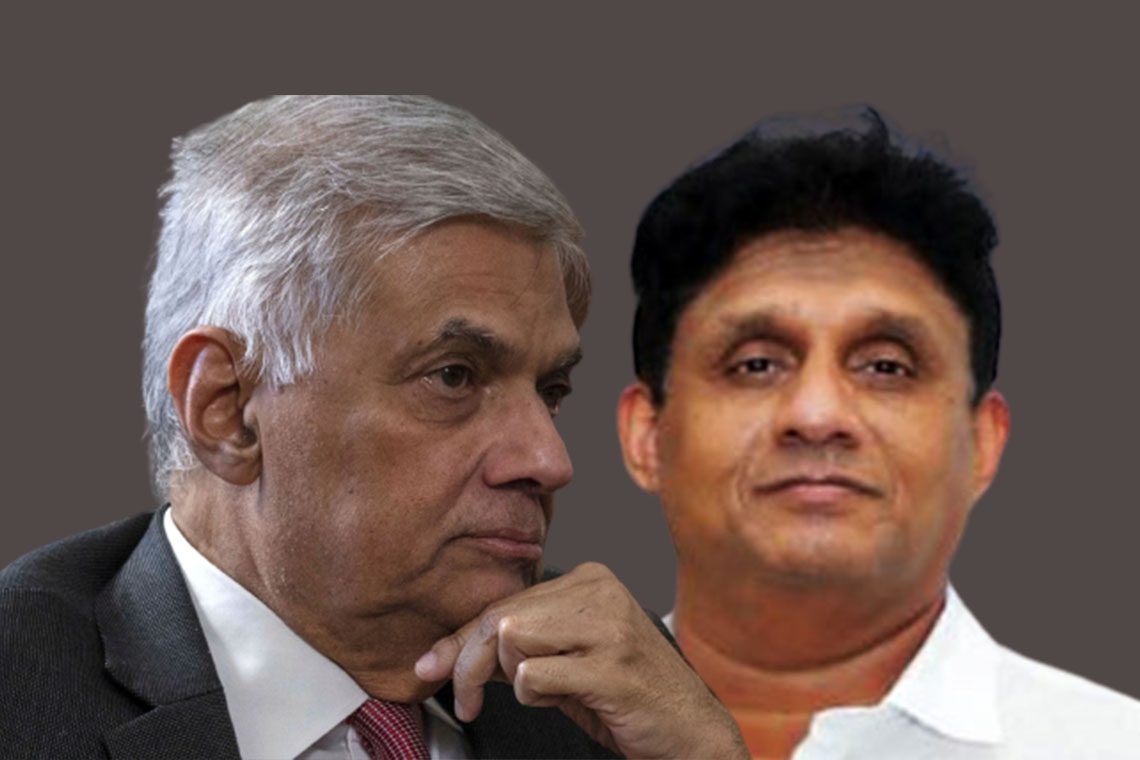The Samagi Jana Balawega (SJB) was established in 2020 under the leadership of Sajith Premadasa, separated from the United National Party (UNP), which was known as the largest single political party in Sri Lanka.
As a result of the long-standing conflicts over the leadership of the UNP, a majority of its members split from the party and formed the SJB.
Several other parties that had joined hands with the UNP also formed an alliance with the SJB in this separation.
After Sajith Premadasa contested the presidential election for the first time in 2019 and was defeated, he left the UNP with a large group and formed the SJB, and the party was elected as the main opposition in parliament in the 2020 general election.
Although the SJB served as the main opposition, it failed to gain power in the presidential and general elections held during the economic crisis and after the struggle.
In the 2024 general election, proposals were made by both parties that the UNP and the SJB should contest the election together.
Those talks failed and both parties contested the election separately.
‘Initially, Sajith was against it’
Both parties have proposed that they should contest separately and reunite after the heavy defeats suffered by both parties.
“Initially, Sajith was against it. But all of them have said that they should unite. Accordingly, Sajith has agreed,” said former minister Rajitha Senaratne, who is intervening on behalf of the alliance on the UNP camp.
He noted that opposition leader Sajith Premadasa, who opposed the UNP-SJB alliance, is currently being pressured to rejoin.
All the opposition parties with a common emblem
Opposition leader Sajith Premadasa has proposed to contest the upcoming elections under the telephone symbol and former president Ranil Wickremesinghe under the elephant symbol.
“Without both of these, our side has said that they should unite all parts of the opposition with one common logo and agree to compete as one group. They have said that they will exert pressure on their side to do the same.”
Common opposition won cooperative votes
Former minister Rajitha Senaratne also mentioned that in the cooperative elections where the opposition parties came together and competed, they were able to defeat the ruling party and gain power.
“In Beruwala, we all contested as one team, and in almost every place, the JVP had only 30%. The rest went to the Joint Opposition. Similarly, if we unite in Biyagama and Homagama, we will win everywhere.”
Discussions to begin this week
General Secretary of SJB, MP Ranjith Madduma Bandara, had the following remarks when inquired about a potential UNP-SJB alliance.
“We will begin discussions this week,” he said, adding that he is not in a position to comment further until the discussions commence.
‘Ranil is the only one left to save the country’
The media had cited a request from the SJB as the main reason for the collapse of talks between the UNP and the SJB to contest the last parliamentary election.
The reports stated that former president Ranil Wickremesinghe was presented with a major condition for resigning from the UNP leadership.
When asked whether the same condition was valid for this time’s talks, SJB general secretary Ranjith Madduma Bandara said that they have not put forward such a condition.
“Today, the entire country is saying that Ranil is the only one left to save the country. What we have to choose at this time are not popular leaders. We need a leader who can save the country,” former MP Rajitha Senaratne said.
Discussions are scheduled to take place regarding the formation of an alliance between the UNP and other opposition parties, including the SJB, to contest the upcoming local government elections.
(With inputs from BBC Sinhala)


